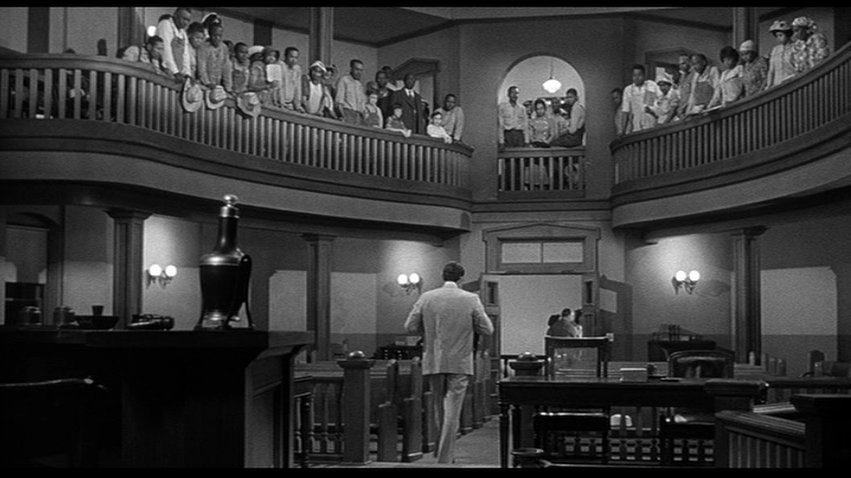Friday
In Barack Obama’s farewell speech Tuesday night, he quoted one of America’s most beloved characters: the Atticus Finch of To Kill a Mockingbird. While I appreciated the allusion, I also found myself thinking of the other Atticus Finch, the one who shows up as a segregationist and member of the White Citizens Council in the 2015 sequel Go Set a Watchman.
That’s because a fair number of white Americans underwent a comparable transformation in the course of the Obama presidency. As long as Obama resembled the docile Tom Robinson, then they were okay with him. When he started complaining about white injustice, however, he wasn’t quite so cool.
First of all, here’s what the president said:
But laws alone won’t be enough. Hearts must change. It won’t change overnight. Social attitudes oftentimes take generations to change. But if our democracy is to work in this increasingly diverse nation, then each one of us need to try to heed the advice of a great character in American fiction — Atticus Finch — (applause) — who said “You never really understand a person until you consider things from his point of view…until you climb into his skin and walk around in it.”
I’ve written several times (here for instance) about how To Kill a Mockingbird, important though it was to me as a child, is a white liberal fantasy. One gets to stand up for what is right—for an innocent black man who has been falsely accused by “white trash”—and receive the adulation of the black community. One gets to be a white savior:
“Miss Jean Louise?”
I looked around. They were standing. All around us and in the balcony on the opposite wall, the Negroes were getting to their feet. Reverend Sykes’s voice was as distant as Judge Taylor’s:
“Miss Jean Louise, stand up. Your father’s passin’.”
As Flannery O’Connor famously observed about the novel, “”It’s interesting that all the folks that are buying it don’t know they are reading a children’s book.”
The childhood innocence has disappeared in the much maligned but, in my view, more realistic sequel. Atticus is disgruntled that African Americans no longer know their place and complains that the NAACP is messing up his world. Calpurnia, meanwhile, has quit his employ and doesn’t have nice things to say about him. When I read what the former housekeeper has to say about Atticus, the words of Jed Leland chastising Charles Foster Kane in Citizen Kane came to me:
You talk about the people as though you owned them, as though they belong to you. Goodness. As long as I can remember, you’ve talked about giving the people their rights, as if you can make them a present of Liberty, as a reward for services rendered… Remember the working man?…You used to write an awful lot about the workingman…He’s turning into something called organized labor. You’re not going to like that one little bit when you find out it means that your working man expects something is his right, not as your gift!
There were some key moments in Obama’s presidency where he began to fall out of favor with some of the white Americans who had voted for him. The first was when he let his anger show after Cambridge police arrested African American scholar William Henry Gates, who was trying to break into his own house. Obama’s popularity with these voters fell further when he said, “If I had a son, he would look like Trayvon,” even though the sentiment endeared him to large segments of the African American community. Obama won the presidency, the indispensable James Bouie of Slate points out, only because he reassured whites that he wasn’t an angry black man. That he wasn’t Jeremiah Wright or Al Sharpton or Jesse Jackson. If he hadn’t done that, Bouie argues, he would have lost.
Understanding this dynamic helps us make sense of a rightwing accusation that otherwise seems unfathomable, that Obama stoked race hatred. In a country where race is as foundational as it is in America, to show even a little anger is like waving a red flag before a bull.
Obama quoting Atticus Finch, therefore, was a hearkening back to his 2008 campaign, when everything seemed possible. As much as I agreed with the ideas of the farewell speech (as I explain here), it also seemed like weak tea in the face of the looming threat of an authoritarian president. Optimism that isn’t grounded in reality becomes mere sentimentality.
Understanding how racism works, however, at least gives us a chance of combatting it. By studying the dynamic between Obama and a certain segment of the white population, progressives have a clearer sense of what we are up against. Besides, a black man winning the presidency is not nothing. We have a concrete instance of what can be accomplished, even if we are about to take a few steps back.
Further thought: To Obama’s credit, he himself has gone out of his way to follow Atticus’s credo and inhabit the skin of whites who hate him. Although it showed up as a gaffe in his 2008 campaign, that’s what he was trying to do when he talked about racists in rural Pennsylvania clinging “to guns and religion.” He saw this as a byproduct of economic bad times, and one of his great regrets was that he wasn’t able to do more for the middle class. (That being said, he did a fair amount.)
